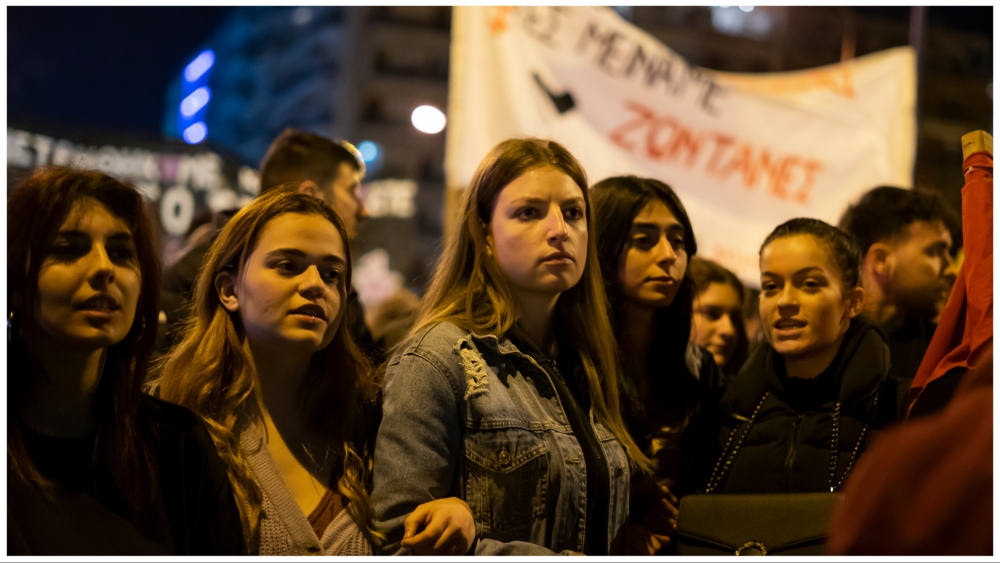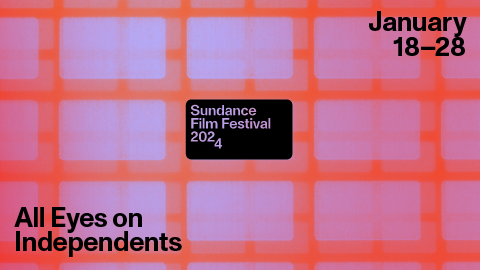
The Thessaloniki Intl. Documentary Festival wrapped its 25th edition with a muted closing night on Sunday, with festival organizers scrapping an official award ceremony as Greece continues to mourn the loss of 57 lives in a deadly rail accident on Feb. 28.
The awards for this year’s festival — including the Golden Alexander, which went to Heba Khaled, Talal Derki and Ali Wajeeh’s “Under the Sky of Damascus” — were handed out behind closed doors earlier in the day.
Artistic director Orestis Andreadakis told Variety prior to the festival’s conclusion, “As a sign of respect, the festival canceled from the very start all ceremonies and festive events. In the same spirit, it was decided to call off the closing ceremony.”
Many of the awarded filmmakers were nevertheless on hand at Thessaloniki’s Olympion cinema on Sunday night, for the world premiere of “My Pet and Me,” by Dutch documentary filmmaker Johan Kramer.
Andreadakis and festival general director Elise Jalladeau offered brief closing remarks before the screening, which they said took place “under the shadow of the tragic accident at Tempe, which has filled us with sadness.” They thanked the filmmakers who took part in this year’s festival, insisting that “in the darkness of the past ten days, art, film, documentaries have offered us the best refuge.”
The somber event matched the mood of a nation still reeling in the aftermath of the deadly accident in which a passenger train carrying 350 people collided with a freight train in northern Greece. That grief has transformed into collective outrage over a tragedy that many say could have been avoided.
The head-on collision in northern Greece claimed 57 lives, most of them university students.
Getty
Speaking at the award ceremony for the festival’s Agora industry arm on March 8, industry head Angeliki Vergou expressed her “shock, sadness and anger” over the loss of life in the fatal head-on collision, in which dozens more were injured. Just a few hundred yards away, thousands marched through the center of Thessaloniki in a massive protest that coincided with a 24-hour general strike and a demonstration for International Women’s Day. Their largely peaceful protest was met with tear gas and stun grenades from riot police.
According to official estimates, 60,000 people demonstrated across Greece last Wednesday, answering a call to action sent out by workers unions and student groups. Activists and organizers say the actual number was much higher, as anger across the country has boiled over in the largest display of public protest since the height of the Greek economic crisis a decade ago.
After initially blaming the fatal accident on “tragic human error,” embattled Prime Minister Kyriakos Mitsotakis assumed responsibility for the collision last week, acknowledging it could have been prevented with proper safeguards in place and promising a thorough overhaul of the railway system. Investigations this past fortnight have detailed chronic neglect, understaffing and underinvestment in the country’s crumbling rail network, which was privatized in 2017 as part of a raft of austerity measures imposed on Greece by its European lenders.
The tragedy has galvanized growing discontent among a generation of young Greeks raised during a debt crisis that decimated the middle class and dimmed their prospects of a better future. Despite a spate of reforms, Greece’s center-right government has been hit by a series of high-profile scandals in recent months, and many feel the tragedy in Tempe is a fitting symbol of a country that has lurched off the rails.
Emotions throughout the week ran high in Thessaloniki, as many of the victims were university students returning from a three-day holiday weekend. Director Maria Louka, who with Myrto Patsalidou co-directed the documentary “Grief — Those Who Remain,” which premiered at the festival, noted that the six-hour rail journey from Athens to Thessaloniki is a familiar one to many of the filmmakers and festival-goers in attendance.

Protesters have directed their outrage toward embattled Prime Minister Kyriakos Mitsotakis
NurPhoto via Getty Images
“We have done it many times and had it in our mind as a safe and pleasant experience. If I didn’t have a very young baby, I would have gone to the festival by train, as I did last year,” Louka told Variety. “So to lose so many people like that caused incredible sadness and anger. That feeling was pervasive [at the film’s premiere].”
The directing duo’s moving and timely documentary follows the parents who were left to grieve in the wake of three brutal murders that shocked Greece in the 2010s, claiming the lives of the young Pakistani immigrant Shahzad Luqman, the anti-fascist hip-hop artist Pavlos Fyssas and the LGBTQ activist and drag performer Zak Kostopoulos. As with last month’s fatal train accident, those killings sparked widespread protests across the country.
Magda Fyssa, the mother of the slain rapper who went by the stage name of Killah P, gave an emotional speech after the movie’s premiere, describing how “all of Greece is mourning again from criminal acts.” “We have lost our children, we have lost a generation, we have lost our future,” she said.
Speaking to a hushed auditorium, Fyssa described the painful, solitary journey of a mother mourning the sudden loss of her son. “It’s those moments when you’re alone, you’re with the thoughts of your child who never leaves your mind all day long. You can do 1,002 things, but half your thoughts are with the child you can’t see, who’s left you. And the other half is with the family who remains,” she said. “I’m thinking of the other parents at this moment, who are suddenly in the same position that we are. And how much pain — how unbearable is the burden they carry.”

After the screening, many in the audience were overcome with emotion, said Louka. As the mourning families took to the stage, they were met with a standing ovation. “They spoke with tenderness and solidarity for the parents who are now grieving their own children,” she said. “There was raw and honest emotion.”
The director nevertheless said it was “liberating” to share that pain with an audience also grappling with its collective sorrow. “The awareness of the fragility of our lives, the traumas, the pain can be alleviated when they become a matter of community, when people do not feel alone. This is what our film shows to a certain extent, this is what I felt at its premiere,” she said.
As tens of thousands again took to the streets across Greece on Sunday, Andreadakis told Variety, “Our country was marked by a terrible accident and our lives changed. However, art, films and documentaries are always the best refuge in such moments.”
The festival director said that “documentary filmmaking is deeply political on every level, and it urges us to become conscious citizens.” In the wake of the recent tragedy, he added that he wanted “to encourage the documentary community to use their art to find meaning, to give us hope.”
Listed below are the main winners of the 25th Thessaloniki International Documentary Festival. The full list can be found here:
International Competition Awards
Golden Alexander: “Under the Sky of Damascus,” by Heba Khaled, Talal Derki, Ali Wajeeh
Silver Alexander: “Who I Am Not,” by Tünde Skovrán
Jury Special Mention: “Narrow Path to Happiness,” by Kata Oláh
Newcomers Competition Awards
Golden Alexander “Dimitri Eipides” Award: “The Voice,” by Dominika Montean-Pańków
Silver Alexander: “In the Sky of Nothingness with the Least,” by Christos Adrianopoulos
Jury Special Mention: “Ladies in Waiting,” by Ioanna Tsoucala
Film Forward Competition Awards
Golden Alexander: “Blue Bag Life,” by Alex Fry, Rebecca Lloyd Evans, Lisa Selby
Silver Alexander: “Dogwatch,” by Gregoris Rentis
FIPRESCI Awards
Best Documentary of the International Competition: “I Like It Here,” by Ralph Arlyck
Best Greek Film in the International Program: “Kristos, the Last Child,” by Giulia Amati














